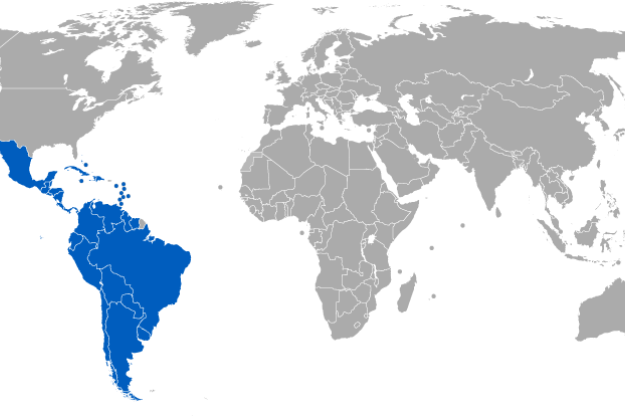
The Government of the Republic of Chile and the Organisation for the Prohibition of Chemical Weapons (OPCW) co-hosted the eighth Regional Meeting of Latin American and Caribbean Chemical Weapons Convention National Authorities in Santiago, Chile from 29 to 31 May 2007. The annual meeting was attended by 33 representatives of the following States Parties in the region: Argentina, Belize, Bolivia, Brazil, Colombia, Costa Rica, Cuba, Ecuador, El Salvador, Guatemala, Haiti, Honduras, Mexico, Nicaragua, Panama, Paraguay, Peru, St Kitts and Nevis, St. Lucia, St. Vincent and the Grenadines, Suriname, Trinidad and Tobago, Uruguay and Venezuela. A representative of the Dominican Republic, which has yet to ratify the Chemical Weapons Convention, and together with the Bahamas are the only remaining non-OPCW Member States in the western hemisphere, also joined the meeting.
The meeting was opened by the Acting Minister of Foreign Affairs, Mr. Alberto van Klaveren Stork and the Director-General of the Organisation for the Prohibition of Chemical Weapons, Ambassador Rogelio Pfirter.
In his opening remarks, Mr van Klaveren Stork reiterated Chile’s commitment to the full and effective implementation of the Chemical Weapons Convention (CWC). He described Chile’s progress towards this objective and expressed his Government’s readiness to share with other Member States the knowledge and experience it has gained in the process of implementing the CWC. He also mentioned that national legislation is under revision. The Ministry of Defense, together with the Ministry of Foreign Affairs, is preparing a law project to enhance the national system regarding CWC matters.
On behalf of the OPCW, Director-General Pfirter thanked the Chilean authorities for their steadfast commitment to the Convention and its goals, as well as for Chile’s invaluable and generous support of the OPCW and the Eighth Regional Meeting. He provided the National Authorities an overview of the status of the Convention’s implementation. The Director-General stressed the importance of actively engaging industry and other sectors, such as customs services, in the process of national implementation.
The meeting enabled States Parties in the region to present their requirements for assistance under the National Implementation Action Plan. They also used this opportunity to offer specific forms of assistance to other States Parties. The National Authorities’ discussions included improving the National Authorities’ capacity to identify and declare industrial activities and highlighting the role of custom authorities in carrying out the import and export provisions of the Convention.
The meeting concluded with a clear indication of the implementation support needs in the region and confirmation of technical assistance visits to States Parties by the Technical Secretariat and National Authorities offering assistance.
On the last day of the meeting, parliamentarians and other national authorities were invited to review the pertinence of the CWC in enhancing peace and security, and moreover to facilitate the adoption of the national implementing legislation in Chile.
In his address to the Regional Meeting, the OPCW Director-General concluded that the Eighth meeting was a great success and thanked the National Authorities of Chile for their organization of the event. He added that two very important matters had been discussed during this regional meeting of national authorities: the national legislation, an important tool for the implementation of the CWC; and the declarations regime, another essential tool. He expressed the importance of adopting national implementing legislation and a standardized declaration to succeed in fully implementing the CWC.
The Under Secretary of Police, Ms Javiera Blanco Suarez, closed the meeting on behalf of the Minister of Defense. In her speech, she declared that the adoption of the CWC proves the determination of the country to fight weapons of mass destruction, and contribute to the peace and security of the world. She also mentioned that the CWC is an essential pillar in the assurance of global harmony.
PR58 / 2007
